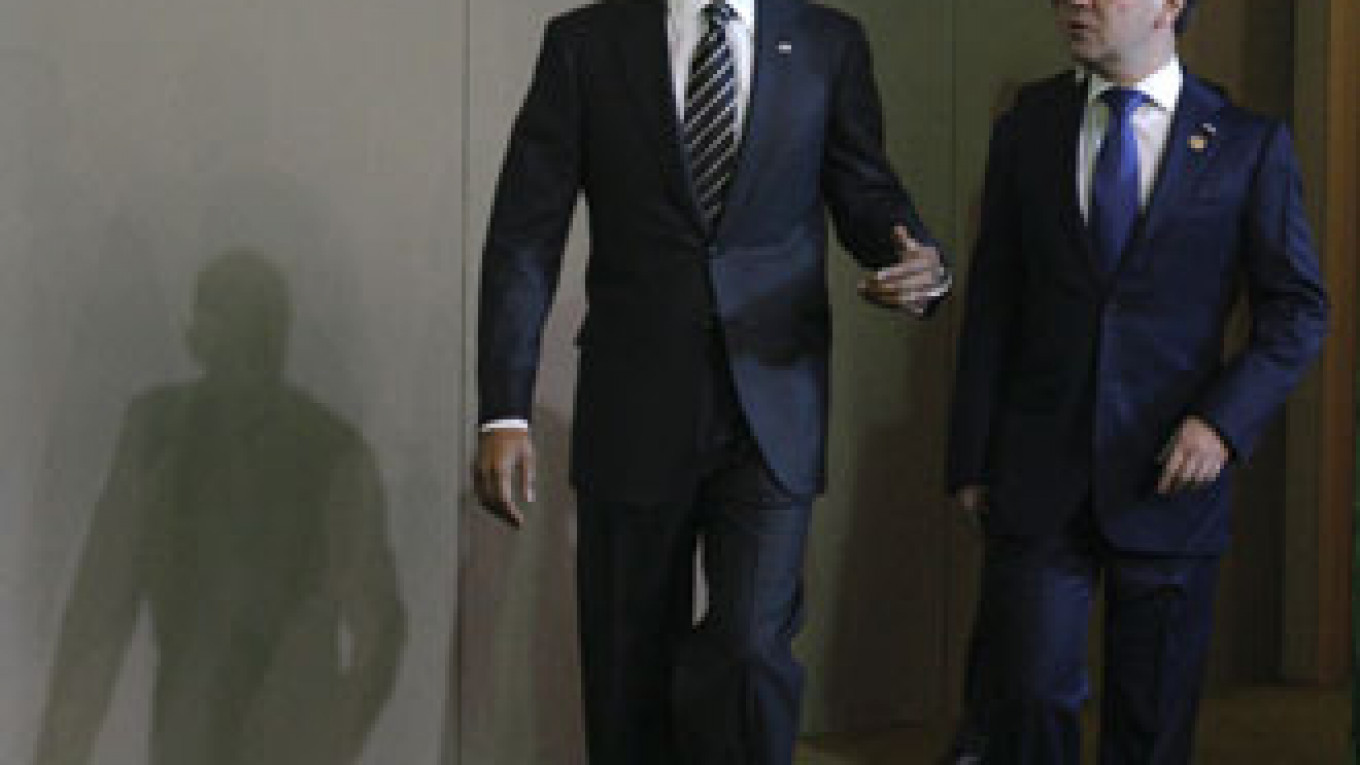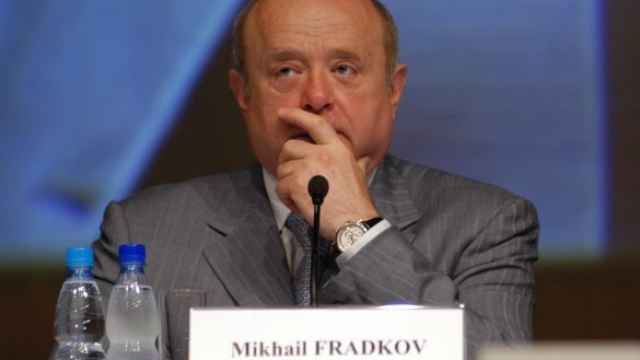President Dmitry Medvedev confirmed on Friday that 11 Russian sleeper agents gathering intelligence on the United States had been betrayed by a mole in the Foreign Intelligence Service and said the secretive body should learn from the incident.
“I knew about it the same day it happened, in full detail,” Medvedev told reporters in Seoul on Friday during his visit for a summit of the Group of 20 largest economies. He refused to provide any other details.
On Thursday, Kommersant reported that a high-ranking intelligence officer, identified only by his surname Shcherbakov, leaked information about Russian agents on U.S. soil and then fled to the United States.
Ten of the Russian agents were arrested in the United States in June, just three days after Medvedev held talks there with U.S. President Barack Obama. The 11th suspect disappeared in Cyprus.
The arrested agents pleaded guilty in a U.S. court and were exchanged for four Russians serving sentences on various related charges, including high treason, in August.
The Washington Post reported Thursday that Shcherbakov's name and patronymic may be Alexander Vasilyevich, citing Oleg Kalugin, a former senior KGB counterintelligence officer who settled in the United States in 1990. Kalugin said he had crossed paths with a person by that name while working in Soviet counterintelligence.
Speaking about the incident, Medvedev said “lessons should be learned,” referring to the Foreign Intelligence Service. The service, once part of the Soviet KGB, was spun off from the Federal Security Service, and some pundits have used the latest scandal as reason to propose reuniting the bodies.
Earlier, several commentators suggested that the scandal might cost the service's head, Mikhail Fradkov, his job. A close ally of Prime Minister Vladimir Putin, Fradkov served as prime minister under then-President Putin from 2004 to 2007.
Stanislav Belkovsky, an independent political expert, said Medvedev might have had strained relations with Fradkov since working under him as a deputy prime minister.
Medvedev was once seen as a candidate to replace him in his post, a move that Fradkov opposed, Belkovsky said. Viktor Zubkov, a current first deputy prime minister, ultimately replaced Fradkov as head of the government in a shakeup before the 2008 presidential elections.
“If [Medvedev] would like to get rid of him, he could do it without consultations with Putin now,” Belkovsky said.
But Alexei Mukhin, director of the Center for Political Information, said Fradkov would not be fired because he is a personal friend of Putin.
Unlike his predecessors in the foreign intelligence job — former Prime Minister Yevgeny Primakov and longtime intelligence official Sergei Lebedev, who built their careers on vast diplomatic and intelligence experience — Fradkov got his start as a Soviet foreign trade official.
Still, some experts suggested that he used the job as a cover for intelligence operations abroad.
Andrei Soldatov, an intelligence analyst at the Agentura think tank, said Fradkov might be able to hang on to his job because he's doing well with the biggest task the government has set for him.
“Putin once said that one of the tasks of the Russian intelligence is to protect Russian business interests abroad," Soldatov said.
A Message from The Moscow Times:
Dear readers,
We are facing unprecedented challenges. Russia's Prosecutor General's Office has designated The Moscow Times as an "undesirable" organization, criminalizing our work and putting our staff at risk of prosecution. This follows our earlier unjust labeling as a "foreign agent."
These actions are direct attempts to silence independent journalism in Russia. The authorities claim our work "discredits the decisions of the Russian leadership." We see things differently: we strive to provide accurate, unbiased reporting on Russia.
We, the journalists of The Moscow Times, refuse to be silenced. But to continue our work, we need your help.
Your support, no matter how small, makes a world of difference. If you can, please support us monthly starting from just $2. It's quick to set up, and every contribution makes a significant impact.
By supporting The Moscow Times, you're defending open, independent journalism in the face of repression. Thank you for standing with us.
Remind me later.






